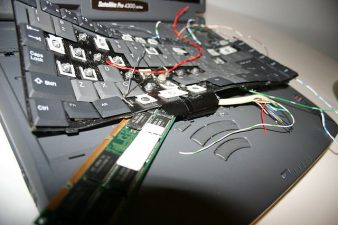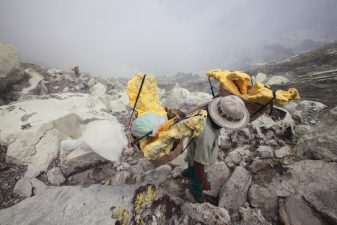The good news is that 800 tons of Syria’s chemical weapons are scheduled to be destroyed before the end of December. The bad news is, the byproducts of this chemical weapon destruction will be dumped into the Mediterranean Sea where they could damage fragile ecosystems.
It’s nearly impossible to sift good news out from stories of the Syrian war: Lebanon, Jordan, Turkey and Iraq have together taken in more than one million Syrian refugees. But this leaves millions of others homeless or displaced within this war-torn country.
Even the fortunate few who find relative safety as refugees are anything but safe. They face violence, crime, heat, cold, rain, thirst, disease, malnutrition and their children are being exploited to do their host country’s dirty work.
People in faraway lands send hand-made hats to try to help keep some Syrian refugee children warm during this winter, only have these gifts meet bureaucracy and corruption at the host country’s border. But now Assad’s regime has agreed to destroy chemical weapons only months after it denied their existence.
On Friday December 7th, the Organization for the Prohibition of Chemical Weapons (OPCW) claimed to have destroyed some of Syria’s chemical weapons and this organization will receive a Nobel price for global disarmament.
But there is a dark side to even this glimmer of good news. The OPCW recently said it is “technically feasible” to destroy these chemical weapons in the Mediterranean Sea.
No one has given details of this chemical weapon destruction, but it is likely that they are being destroyed aboard a ship by hydrolysis instead of incineration.
What this means is that the chemical weapons will be mixed with other chemicals which will neutralize and de-weaponize them.
But one of the first things a budding chemistry student learns is to balance chemical equations. Except for the miniscule fraction of matter converted to energy or transmuted in nuclear reactions, all of the chemical elements present before the reaction will be present after the reaction.
For all practical purposes, matter is neither created nor destroyed. This means these weapons won’t disappear. They will simply change chemical form to something considered less harmful than the original chemical weapons. But this does not mean they will be rendered harmless.
Israel National News reports that Professor Moshe Kol, Organic Chemistry Professor at Tel Aviv University is concerned the the byproducts of chemical weapon destruction will harm sea life.
Byproducts of the destruction of Assad’s chemical weapons are likely to include sodium hypochlorite and phosphoric acid. These are less harmful than the original chemical weapons.
On a small scale we might even consider them harmless. For example, sodium hypochlorite is used in chlorine laundry bleach and phosphoric acid is one of the main ingredients of Coca Cola.
But what is harmless at low concentrations and a small scale can be very harmful at large concentrations and an enormous scale. More than 800 tons of potentially harmful chemicals will be dumped into the Mediterranean Sea over the next few months. And that’s the good news.
Creative Commons photo of Wadi Qandil beach near Lattakia, Syria by Victor Ibrahiem via Wikimedia.





Dumping toxic weapons’ chemicals into the Mediterranean Sea is an act of ecocidal insanity. Please stop them!!!
Really sad news. These chemicals should have been dumped on the bloody regime’s head long time back!
There are laws against such chemical dumping, but apparently not enforced by Mediterranean nations.
It is not that the Mediterranean country’s are not enforcing these laws/conventions/protocol, but that the United States is bulldozing the effort into play before anyone else has the chance to do anything about it. If it was so safe, why are they having to transport these toxins so far from the source? Why have there been no testing and studies as to the impact this will have on our fragile marine ecosystem… Why will the testing of the equipment and process be done on location by civilians with two weeks of prior training? This is a disaster in the making!
I have been watching the news about this process. It is a second generation iteration of an idea that was proposed for the Gulf of Mexico off the coast of Louisiana in the 1970’s. Unfortunately, the technology has not improved much. The idea that dumping chemicals (however they’ve been stabiliized) is safe is simply absurd. Sooner or later, those chemicals are going to end up in the aquatic mammals, fish, birds and vegetation in the body of water where they are dumped. From there, they will likely end up in the humans around that body of water for generations.
Now is the time for the nations that will be affected to make their concerns known. Rest assured that potential health effects and impacts on the surrounding areas have not been taken into consideration in this political process. Ask them to evaluate the system for potential impacts and open the process to comments from individuals in those nations.